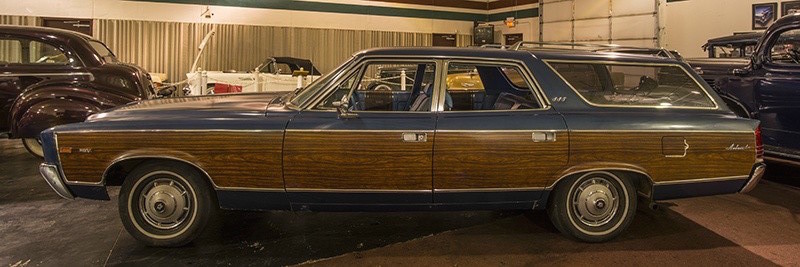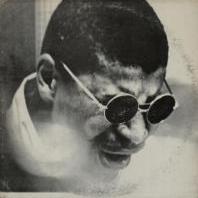Here's Fred Jung's 2003 interview with Brown:
In recent years, I had heard that Marion Brown was ill. Such vague details were of grave concern since I had first experienced his virtuoso playing on John Coltrane's wicked Ascension opus. It was only a matter of time before Three for Shepp was in my collection and then came Porto Nova, Reed 'n Vibes, and Live in Japan. Through Roadshow friend, Gunter Hampel, I learned of Brown's trials and they are many in number. Brown has undergone brain surgery, eye surgery, has had all of his teeth extracted, and a portion of his leg has been amputated and he has had to learn to walk with a prosthetic. For such a gentle soul, it is too much for me to bear. From an undisclosed nursing home in New York, we spoke of his life, his love, his music, as always, unedited and in his own words.
FRED JUNG: Let's start from the beginning.
MARION BROWN: It was because of my mother. My mother liked music and I loved her a lot and she brought me to the attention of music and it stuck, so I started taking lessons. The saxophone was my first instrument because of Charlie Parker. When I heard him, it was the greatest saxophonist I had ever heard before. He decimated me. I liked his technique and his ideas. He had stupendous technique and brilliant ideas. That showed me that he's a very intelligent man.
FJ: You attended both Clark College and Howard University, an impressive amount of education, which at the time was unheard of for a black man.
MB: Yeah, right, Fred. And then I played in the army band for three years. It was very good experience. That's how I got my chops and learned to be able to rely on myself. I played the alto, the clarinet and the baritone saxophone.
FJ: What prompted the move to New York?
MB: My mother wanted a better life for herself and a better life for me, so she came to New York to find it.
FJ: Sounds like she was a single mother.
MB: Yes, she was. My mother was my total inspiration. Everything I did, I did it for her.
FJ: How did you get involved with the Sixties free jazz whirlwind?
MB: After I left Howard University and came to New York City and met Archie Shepp and Ornette Coleman. I met Archie Shepp in 1962. He lived in a building where I had a friend live, Leroy Jones. And one time I was visiting Leroy Jones and on the way downstairs, I heard Archie Shepp in his studio practicing, so I went in. I had a soprano recorder in my pocket and I played some soprano sonatas for Archie and he liked my playing so well, he offered me the opportunity to play with him. But I didn't have a saxophone, so Ornette Coleman let me use his white plastic saxophone to get started.
FJ: Nice of Ornette to come through and the infamous white plastic saxophone no less.
MB: Well, I met Ornette through WBAI FM. I did some jazz programs on there substituting for A.B. Spellman and Ornette heard me and he liked what I did and he wanted to meet me.
FJ: At the time, Ornette was creating quite a firestorm in New York. What was your impression of Ornette?
MB: Ornette Coleman is the same as Charlie Parker, but he did it a different, the opposite way. Charlie Parker did everything that he did based on knowing harmony and chords. Ornette Coleman did everything he did based on knowing how to reach inside of himself and create music intuitively.
FJ: Whose approach did you find more appealing?
MB: I found Ornette more appealing. I thought it was better to play what you felt naturally than to have a lot of systems based on chords and things.
FJ: Being without a saxophone initially, when were you able to purchase your own horn?
MB: As soon as I started working with Archie, I earned enough money to buy my own, so I gave Ornette his horn back.
FJ: You performed on John Coltrane's Ascension. How did you find yourself on the session?
MB: Well, I met Coltrane through Archie Shepp. Archie told him about my music and he started to listen to it and he liked it. And then, several times, he would come to hear me play and he liked that. So when he decided to do “Ascension”, I fit the picture of somebody that he wanted in it. Coltrane was a very brilliant man and a beautiful person. He was one of a kind. His sound and technique, those things he used to play called “sheets of sound,” that and his feeling of a love for God. His spirituality became the most important part of his music because he was thankful to God for all the things that God had given him to make him who he was.
FJ: During much of the Sixties, American musicians were seeking sanctuary and employment in Europe. You were one of them.
MB: The climate was good as far as people liking the music, but it was impossible to make enough money to meet the cost of living. The climate was the same in Europe. People liked music and it was possible to get enough gigs to survive.
FJ: You recorded two sessions for the ESP label, Marion Brown Quartet and Why Not?, how did you end up recording for the now defunct label?
MB: I found out where their office was and I started going by there and talking to them. So they basically became interested in seeing what I had and when he heard me, he liked me and so he gave me an opportunity to record. As a matter of fact, Fred, that very first album that I made for ESP is being reissued next month.
FJ: Compared to the ESP dates, Three for Shepp, and Porto Nova, Afternoon of a Georgia Faun set in motion the inclusion of African rhythms and motifs in your music.
MB: It is the performance of it because African music has as performers, not only the performers, but the audience and listeners as well.
FJ: An example of that would be the Art Ensemble.
MB: Yes. I did that with Leo Smith. He stayed in Connecticut when I was up there teaching. He needed a place to stay and I had a house, so I let him stay with me. We became friends and musical partners back then. I was teaching in elementary schools. I was teaching children how to make instruments and create their own music.
FJ: What were some instruments you developed?
MB: I made mostly percussion instruments and I made some flutes from bamboo. I played them with Leo Smith and for ECM on Afternoon of a Georgia Faun.
FJ: Let's touch on your collaboration with Gunter Hampel, whom you worked with for almost twenty-five years.
MB: I met him the first time in Belgium, Liege. We became friends and worked together and as a matter of fact, him and I played here at this place last month.
FJ: As educated as you are, music is one of many options you could have taken, any regrets?
MB: No regrets and I still don't because I'm a very well known musician and I met a lot of people. As a matter of fact, Fred, last year, I met Sonny Rollins, who is one of the most beautiful people that I've met in my whole life. Not only is he a musical genius, but he's a human genius. I would love to record with him.
FJ: Your health has been a concern, how are you holding up?
MB: I'm fine now, but for the last six years, I've been through some serious health problems. I had brain surgery. I had laser eye surgery, all of my teeth removed, and the last thing was that my left foot was amputated, so I have to walk now with a prosthetics. It has been a challenge. That is what they taught me to do at this place.
FJ: How long of a period passed before you were able to comfortably walk?
MB: Twelve weeks. It puts life in a perspective, but the perspective is more beautiful before these things happened because I've learned to appreciate God more.
FJ: Any memories stand out?
MB: Philly Joe Jones. He was an incredible drummer and a very incredible person. It was the night that I recorded with him first. I went into the studio and he was setting up his drums. So I walked over to him and said, “Hey, Joe, how you doing?” And he said, “Fine, Marion.” I said, “What are you going to do for me tonight?” And then he smiled and said, “I'm going to fry your little ass.” (Laughing) And he did. Yes, he did because the man could play four, five rhythms all at the same time, different ones and have them all clicking on the one. I played better than I had ever played before because he spun a carpet under me. All I had to do was ride it.
FJ: And the future?
MB: I recorded last year with a singer and that's about it. There is a new record out in Germany that I'm on.
_forumlogo.png.a607ef20a6e0c299ab2aa6443aa1f32e.png)

